Multi-currency cards are a low-fee, prepaid alternative to cash and traditional bank cards that are designed to be used abroad
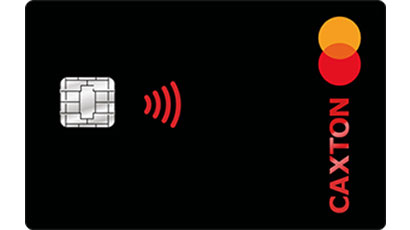 |
Caxton Currency CardHighly-rated by our customers, the Caxton Currency Card offers extremely competitive exchange rates, no transaction fees and free ATM withdrawals when used abroad. A solid all-round choice for spending overseas. |
Get It |
| Caxton ❯ | ||
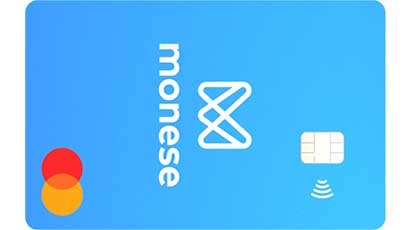 |
Monese Currency CardMonese is an instant bank account with a contactless Mastercard debit card which is tailored towards spending abroad. Use it to spend or withdraw cash anywhere in the world and enjoy great exchange rates and low fees with no credit checks required. |
Get It |
| Monese ❯ | ||
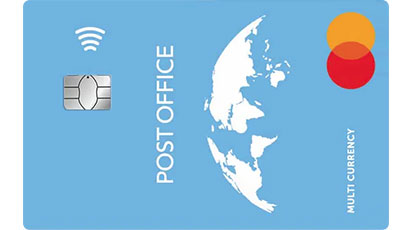 |
Post Office Currency CardPay no charges when you spend abroad using an available balance of local currency supported by the Post Office Travel Money Card. It's safe to use, not linked to your bank account, and you can transfer your funds between 22 currencies, subject to exchange rates, whenever you like via our app or online. You can use it wherever the Mastercard Acceptance Mark is displayed. |
Get It |
| Post Office ❯ | ||
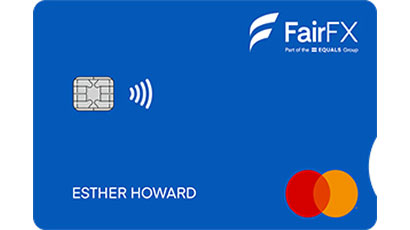 |
FairFX Travel Money CardPut the world in your wallet with the FairFX Multi-Currency card. Get your free physical or virtual card to use in over 190 countries around the world wherever Mastercard is accepted. You can hold 20 major currencies on your account and spend these fee-free on your card. There is just a 2.25% transaction fee in exotic currencies. You can even earn up to 3.5% cashback at home at some of the UK's top high street retailers. Manage your money instantly and easily with our online platform and mobile app. |
Get It |
| FairFX ❯ | ||
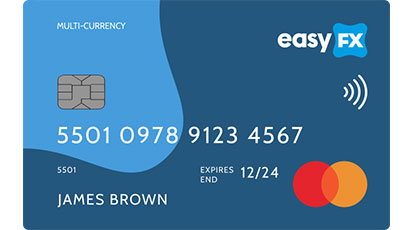 |
EasyFX Multi-currency CardUse the Easy FX multi-currency card to spend money anywhere in the world. You'll enjoy free transactions, free ATM withdrawals and free international transfers wherever you go. |
Get It |
| EasyFX ❯ | ||
Mutli-currency prepaid travel money cards are a unique kind of payment method which are designed to be more cost-effective than a standard UK credit or debit card when used abroad. They are intended to be a modern replacement to Travellers Cheques as they are more secure, more widely accepted and can be used anywhere in the world that accepts VISA or MasterCard.
Like traditional bank cards they are made of high-quality, durable plastic and come complete with chip-and-pin protection as standard which means they are just as secure as a regular bank card. However, unlike traditional bank cards, prepaid cards are not linked to your bank account in any way which means you cannot go overdrawn with them; you simply 'load' British pounds onto your card over the phone or internet (paying using your regular bank card) and top your balance up when it runs out. There are no hidden charges and no surprise bills when you return home from holiday.
Most prepaid travel cards are free to purchase (a minimum initial top-up of around £50 is usually required) and are suitable for everyone from solo travellers and couples to families and large groups. Multiple cards can be linked to the same account which is perfect for families on a budget and any left-over currency at the end of your trip can be converted back into Pounds, usually at the rate you bought it at.
What really makes prepaid travel cards worthwhile is how much cheaper they are to use when overseas compared with regular bank cards. To understand why, first you have to understand a little bit about how the charges can add up when you use your regular bank card when you're outside of the UK.
Firstly there's the exchange rate. If you use your UK bank card outside of the UK your bank will convert your British Pounds into the local currency using their daily exchange rate at the time you make the payment. High street banks are notorious for having some of the worst exchange rates because they don't have to be competitive. Your bank will also add on transaction or point-of-sale fees which can be a fixed amount or a percentage of the total transaction value. That's a fee you have to pay your bank every time you use your card or withdraw money when you're away!
So how are prepaid multi-currency cards different? Well most card providers we compare offer far better exchange rates than UK banks which means you'll get a better deal right from the start. As for the transaction fees - prepaid cards offer much lower or even no transaction fees (FX fees) so you only pay what you see and nothing else. You'll have to compare our prepaid cards to see which one is best for you - some charge FX fees but withdrawing money from an ATM is free. Some offer no FX fees but charge for cash withdrawals.